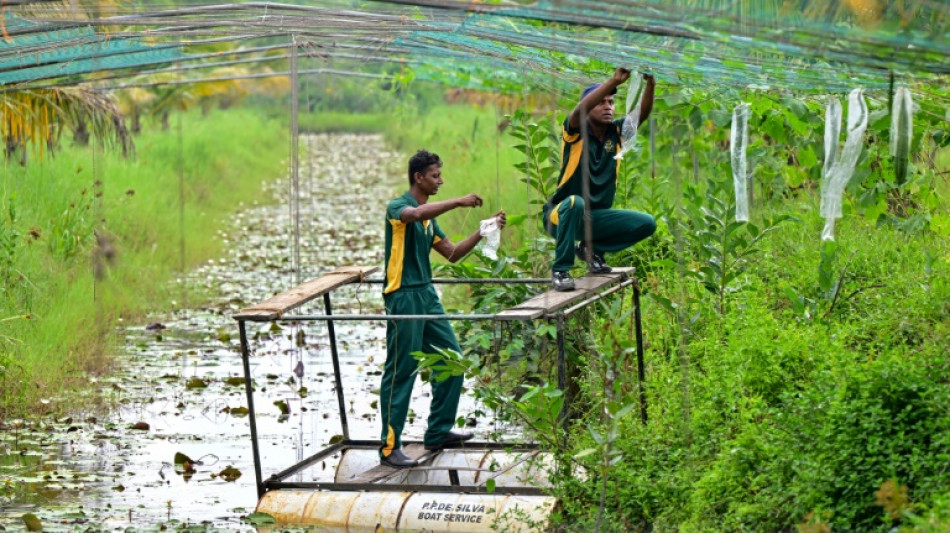
-
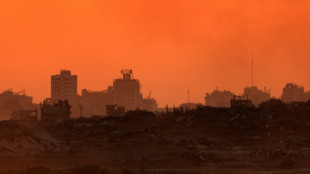 Israel to 'take control' of Gaza City after approving new war plan
Israel to 'take control' of Gaza City after approving new war plan
-
Australian A-League side Western United stripped of licence

-
 'Back home': family who fled front buried after Kyiv strike
'Back home': family who fled front buried after Kyiv strike
-
Indonesia cracks down on pirate protest flag

-
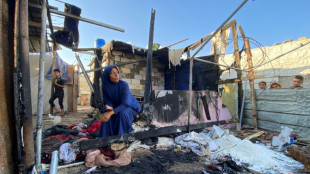 Israeli army will 'take control' of Gaza City: PM's office
Israeli army will 'take control' of Gaza City: PM's office
-
Australian mushroom murderer accused of poisoning husband

-
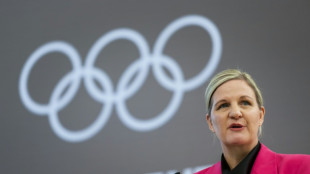 Coventry's mettle tested by Russian Olympic debate, say former IOC figures
Coventry's mettle tested by Russian Olympic debate, say former IOC figures
-
Library user borrows rare Chinese artwork, returns fakes: US officials
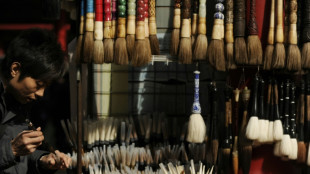
-
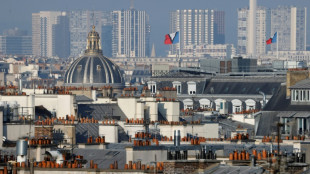 Parisians hot under the collar over A/C in apartments
Parisians hot under the collar over A/C in apartments
-
Crypto group reportedly says it planned sex toy tosses at WNBA games

-
 American Shelton tops Khachanov to win first ATP Masters title in Toronto
American Shelton tops Khachanov to win first ATP Masters title in Toronto
-
Tokyo soars on trade deal relief as Asian markets limp into weekend

-
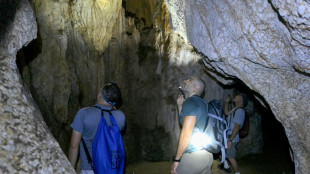 New species teem in Cambodia's threatened karst
New species teem in Cambodia's threatened karst
-
Australian mushroom murderer accused of poisoning husband: police

-
 Solid gold, royal missives and Nobel noms: how to win Trump over
Solid gold, royal missives and Nobel noms: how to win Trump over
-
Canadian teen Mboko outlasts Osaka to win WTA Montreal crown

-
 Trump to host Armenia, Azerbaijan for historic 'Peace Signing'
Trump to host Armenia, Azerbaijan for historic 'Peace Signing'
-
Israeli airline's Paris offices daubed with red paint, slogans

-
 US raises bounty on Venezuela's Maduro to $50 mn
US raises bounty on Venezuela's Maduro to $50 mn
-
Lebanon cabinet meets again on Hezbollah disarmament

-
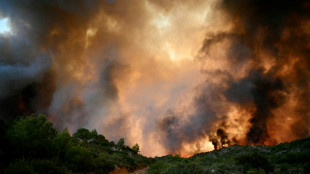 France's huge wildfire will burn for days: authorities
France's huge wildfire will burn for days: authorities
-
Bolivia right-wing presidential hopeful vows 'radical change'

-
 Trump says would meet Putin without Zelensky sit-down
Trump says would meet Putin without Zelensky sit-down
-
Trump offers data to justify firing of labor stats chief

-
 Bhatia leads by one at PGA St. Jude, Scheffler five adrift
Bhatia leads by one at PGA St. Jude, Scheffler five adrift
-
Disney settles Trump-supporting 'Star Wars' actor lawsuit

-
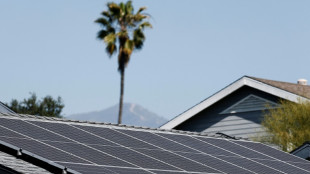 Trump moves to kill $7 billion in solar panel grants
Trump moves to kill $7 billion in solar panel grants
-
Venus Williams falls at first hurdle in Cincinnati

-
 Mixed day for global stocks as latest Trump levies take effect
Mixed day for global stocks as latest Trump levies take effect
-
SpaceX agrees to take Italian experiments to Mars
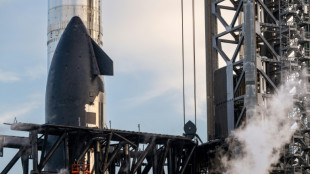
-
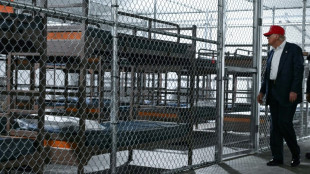 US judge orders temporary halt to new 'Alligator Alcatraz' construction
US judge orders temporary halt to new 'Alligator Alcatraz' construction
-
US uses war rhetoric, Superman to recruit for migrant crackdown

-
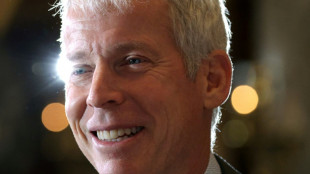 US to rewrite its past national climate reports
US to rewrite its past national climate reports
-
U can't pay this: MC Hammer sued over delinquent car loan

-
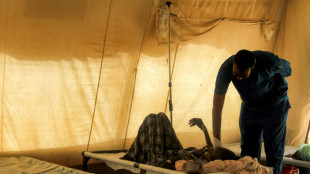 WHO says nearly 100,000 struck with cholera in Sudan
WHO says nearly 100,000 struck with cholera in Sudan
-
Huge wildfire in southern France now under control
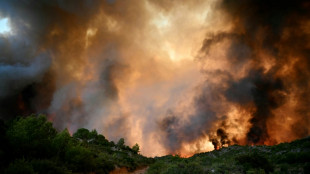
-
 Kane scores as Bayern thump Spurs in pre-season friendly
Kane scores as Bayern thump Spurs in pre-season friendly
-
France strikes down return of banned bee-killing pesticide
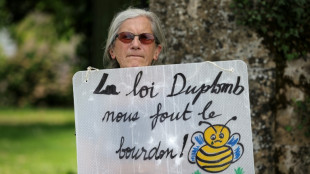
-
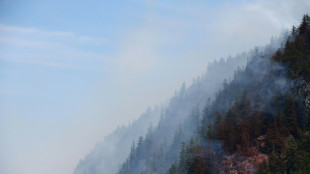 Canada sends troops to eastern province as fire damage grows
Canada sends troops to eastern province as fire damage grows
-
OpenAI releases ChatGPT-5 as AI race accelerates

-
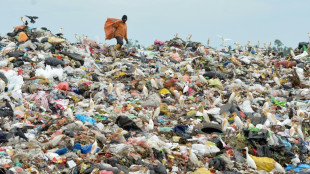 Plastic pollution treaty talks deadlocked
Plastic pollution treaty talks deadlocked
-
A French sailor's personal 'Plastic Odyssey'
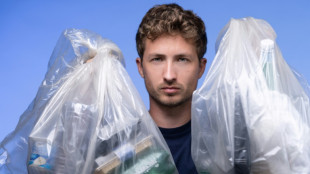
-
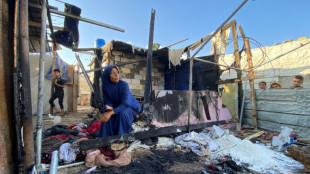 Netanyahu says Israel to control not govern Gaza
Netanyahu says Israel to control not govern Gaza
-
Partey signs for Villarreal while on bail for rape charges

-
 Wales have the talent to rise again, says rugby head coach Tandy
Wales have the talent to rise again, says rugby head coach Tandy
-
US partners seek relief as Trump tariffs upend global trade

-
 Five England players nominated for women's Ballon d'Or
Five England players nominated for women's Ballon d'Or
-
PSG dominate list of men's Ballon D'Or nominees

-
 Americans eating (slightly) less ultra-processed food
Americans eating (slightly) less ultra-processed food
-
Man Utd agree 85m euro deal to sign Sesko: reports

| RBGPF | -5.79% | 71.84 | $ | |
| RYCEF | -0.42% | 14.44 | $ | |
| CMSC | 0.04% | 22.96 | $ | |
| CMSD | -0.09% | 23.52 | $ | |
| NGG | -0.31% | 72.08 | $ | |
| RIO | 1.12% | 60.77 | $ | |
| GSK | 2.21% | 37.58 | $ | |
| SCS | 0.06% | 16 | $ | |
| BCC | 0.32% | 83.19 | $ | |
| SCU | 0% | 12.72 | $ | |
| BCE | 2.23% | 23.78 | $ | |
| VOD | -0.36% | 11.26 | $ | |
| RELX | 1.03% | 49.32 | $ | |
| JRI | 0.52% | 13.41 | $ | |
| AZN | 1.3% | 74.57 | $ | |
| BTI | 0.51% | 56.69 | $ | |
| BP | 0.91% | 34.19 | $ |

Salt of the earth: Pilot project helping reclaim Sri Lankan farms
A commando in an elite Sri Lankan police unit, Sameera Dilshan has an unusual mission -- to reclaim farms poisoned by salt, a long-standing problem now accelerating due to climate change.
Increasing salinity is slowly and steadily swallowing traditional rice paddies along the island's coastline, taking away the livelihood of generations of farmers.
Two hours' drive south of the capital Colombo lies Katukurunda –- one of the camps of the formidable Special Task Force (STF), an elite force created four decades ago to fight Tamil rebels.
While his colleagues train for riot control under the humid heat of the nearby Indian Ocean, the 35-year-old non-commissioned officer and his "commando-farmer" team are hoeing, weeding, and watering.
Their goal? To grow coconut palms and a wide variety of fruits and vegetables in a paddy declared dead 40 years ago due to salt water contamination.
"This plantation was launched in 2022 as part of a government initiative to improve food security," Dilshan said, with local authorities allocating out land parcels.
The method -- known as "sorjan", is similar to techniques used in Thailand and Indonesia.
It reshapes flood-prone land by digging ponds where rice can be grown or fish raised, with more saline-tolerant coconut trees planted.
Embankments around these ponds are used for more delicate crops.
"We're tending to 360 coconut trees planted here... along with pumpkins, gourds, and cucumbers," said Dilshan. "In two and a half years, we'll know if it's a success or not."
- Yields under threat -
"It's an efficient and climate-resilient production system that optimises land use and productivity, and increases farmers' profits," said Buddhi Marambe, from the University of Peradeniya.
The UN Food and Agriculture Organization (FAO) said in a 2024 report that saltwater from seas and oceans affects 10.7 percent of the earth's land, making it uncultivable in some cases.
It travels up rivers with the tides, seeps into soil through evaporation, and contaminates groundwater used for irrigation.
Climate change -– which dries out the soil, reduces water resources, or raises sea levels –- is expected to increase the proportion of such "salty" land from 24 percent to 32 percent of the world's surface area by the end of the century, the FAO warns.
These trends "threaten agricultural productivity and reduce crop yields in affected zones", it warns.
Sri Lanka is no exception.
Marambe estimates that 223,000 hectares (551,000 acres), half of which are rice paddies, are impacted by salinity -- nearly eight percent of the country's total arable land.
- Seeping salt -
South of the pilot plantation lies the village of Parappuwa, surrounded by abandoned land.
Here, just a few kilometres from the sea, only a tiny portion of the paddy fields is still in use.
"Everything is polluted by salt that comes up during high tide," said Gamini Piyal Wijesinghe, 46, a farmer's son who, after he left the army, went into the restaurant business instead.
He pointed to a small stream, where 18 small dams were built to stop the seawater.
"They weren't constructed properly," he said. "The water seeps through."
Other former rice farmers have turned to cinnamon or rubber cultivation.
"Cinnamon is doing fairly well, but our income has significantly dropped since we stopped growing rice," said W.D. Jayaratne, 50, head of the local farmers' association.
The future is gloomy.
"Salinity in the water is increasing and threatening our farmland," he added. "There are also insects. Everywhere you look, there are problems."
In this district of Kalutara, local authorities are offering abandoned land to farmers to bring it back under cultivation, mostly with coconut trees.
"We've already allocated 400 hectares and plan to increase that to 1,000 in the next two years," said the district chief Janaka Gunawardana.
"There's high demand for coconut. It will create income for our people."
- Resistant varieties -
In Katukurunda, Aruna Priyankara Perera, 55, was encouraged by the success of the STF farming experiment.
"I got five acres (two hectares) next to my hotel to replicate the STF's project," he said standing in front of his freshly planted coconut and pumpkin field.
"The land is free for two years, provided you can show it's being cultivated."
The local staple rice is a top concern for the authorities.
"Soil salinity is a major issue in Sri Lanka," said Marambe.
"We've successfully tested several promising rice varieties that are resistant to salinity and flooding."
The stakes are high.
A recent study of the Bentota river estuary, in the island's southwest, found that half of local rice farmers had lost all their income due to saltwater contamination.
Even more seriously, Sri Lanka's food security is now under threat. The last rice harvest, from September to March, was the country's lowest since 2019.
"If we don't all roll up our sleeves to bring salt-polluted land back into cultivation and production," warned Marambe, "the future will only get darker."
L.Hussein--SF-PST

